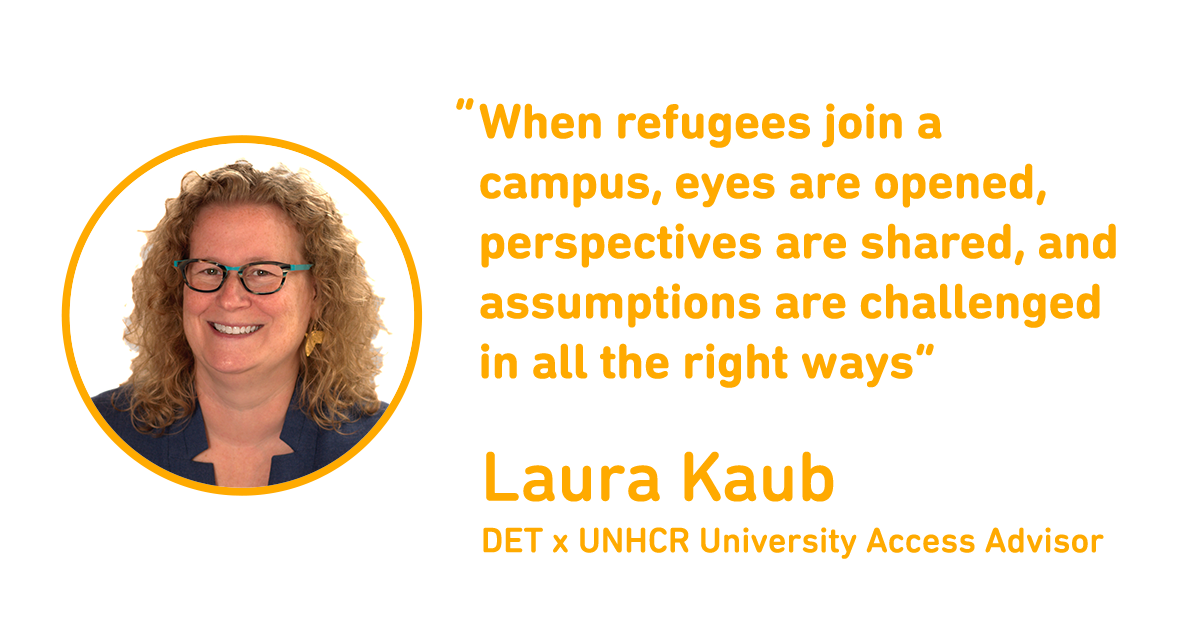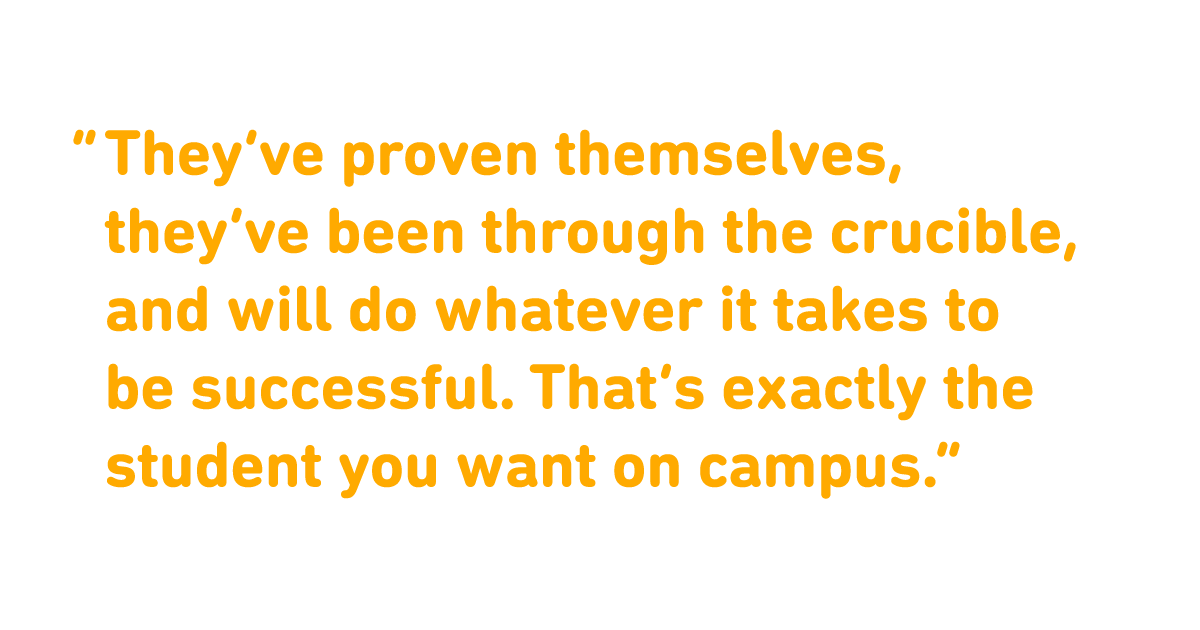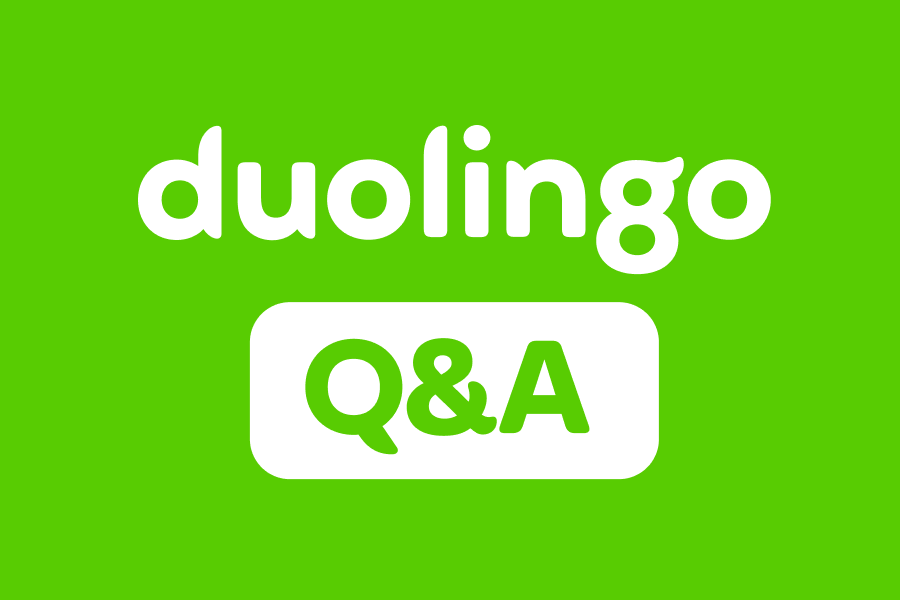Last year on World Refugee Day, Duolingo announced a partnership with the United Nations’ High Commission on Refugees (UNHCR) to create a new university advisor position at UNHCR focused on supporting refugees as they navigate the university admission and financial aid processes. In honor of this year’s World Refugee Day, we asked access advisor, Laura Kaub, how universities can best support refugee applicants. Here are five things they can do:
Be flexible
Refugee children are 30% less likely to complete primary education, 50% less likely to complete secondary education. Fewer than one out of every twenty refugee students actually makes it to higher education. Knowing this, Laura says anyone who’s been able to complete secondary school and submit a college application is someone worth considering.
“Imagine how smart, how resourceful, how resilient someone must be to make it that far given the challenges they faced. Imagine how extraordinary they are,” she says. “They've proven themselves — they’ve been through the crucible and can do what it takes to be successful. That’s exactly the student you want on campus.”
Students who had to flee their homes might not have access to full transcripts or other typical documentation that admissions officers usually look for in an application. It’s also possible that they were unable to travel to test centers to take certain exams. But that doesn’t mean they haven’t provided enough information to demonstrate what kind of applicant they are.
“I’m not saying to admit a student without any academic documents — obviously, some information is required to make a good decision,” says Laura. “But given the hurdles that these students have had to go over, it’s reasonable for an admissions officer to work a little harder to help find that information, for example by asking an organization in the student’s community to provide some more context.”
She says universities should consider their requirements, as well as what the barriers may be to fulfilling them, and work with the students to find a path forward.

Think creatively
There’s a common assumption that refugee students have dealt with such adversity or have so many gaps in their education that they are unlikely to be prepared for university. But this isn’t always accurate—nor is it unique.
“So maybe they’ve missed some school. Maybe they’ve forgotten how to do differential equations, or they haven't been practicing their academic writing recently,” says Laura. “You know what? That also describes a whole lot of low income students from the next town over who are already enrolled!”
This is exactly why most universities already have academic support offices, writing centers, international student offices, and various programs designed to help students succeed on campus. So rather than overestimating the gap and underestimating the student, as Laura puts it, institutions should consider what programs and resources they already have that could be used to support refugee students.
Be transparent
Application and enrollment systems can be very different not only from country to country, but also from one school to the next. This is especially true when it comes to financial aid. Things that may seem obvious from the university’s perspective may not be to a student who is navigating the process from another country, on unstable internet, or all by themselves.
“Even the fullest so-called ‘full scholarship’ doesn't cover every single dollar that a student needs to go to university when you factor in the cost of applying for a visa, buying a plane ticket, maybe a computer, textbooks, winter clothes… the list goes on,” says Laura.
So be fully transparent about what students can expect to pay for, the financial aid you do offer, and how to qualify for it. Knowing what they need to do upfront, whether in the application process or the enrollment process, is a huge help for students and their families, because it lets applicants aim towards institutions that meet enough of their needs to make applying a viable effort.

Recognize the benefits
A lot of the conversation about supporting refugee students comes from the perspective of how institutions can help the individual. But Laura says this fails to recognize what refugee students have to offer.
“When refugees join a campus, eyes are opened, perspectives are shared, and assumptions are challenged in all the right ways,” says Laura. “Young people go to university to discover the world, and this is one of the important ways they encounter it.”
Refugee students bring a unique perspective to the campus that their peers, as well as their instructors, can learn from. Supporting them is an investment in the future—not only of one student, but of the student body, and of the wider community.
Build partnerships & coalitions
Laura stresses the value of building coalitions with other institutions and stakeholders who are working to support refugee students, in order to share resources and best practices. Having informed and trusted partners is a huge advantage to students and institutions, because they can work together to help connect applicants to the colleges that are the right academic and social fit.
“There are wonderful organizations who are doing this work, who have on the ground context and can help explain things,” says Laura. “They want to help, so all you have to do is reach out and ask.”
The Duolingo English Test access program has always provided test fee waivers to low income students, and to students in crisis from natural disaster and global conflict. With the addition of the DET x UNHCR program, it has also prioritized supporting refugee students on their paths to higher education. To learn more about our access program or to connect with Laura, email institutional+access@duolingo.com!



